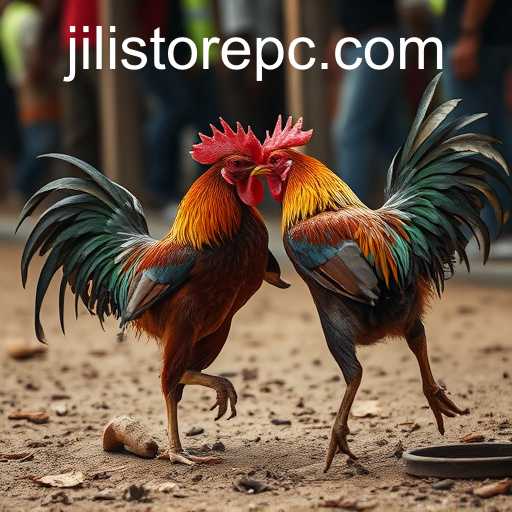Cockfighting: A Tradition Cloaked in Controversy
Cockfighting is a practice steeped in history and tradition, existing at the crossroads of sport, culture, and controversy. Its origins can be traced back thousands of years, with evidence of the sport in ancient civilizations like Greece, Rome, and Persia. Over time, it entrenched itself deeply in various cultural landscapes, triggering a myriad of ethical debates that continue to this day.jili hot
The Anatomy of Cockfighting
The essence of cockfighting is simple: two roosters, known as gamecocks, are pitted against each other in a fight until one is incapacitated or dies. These birds are specially bred and trained for combat, often adorned with sharp spurs to enhance their lethal capabilities. Despite its simplicity, cockfighting is a complex affair involving various stakeholders, from breeders and trainers to gamblers and spectators.
The Cultural Significance
In many cultures, cockfighting is more than just a sport—it is a cultural ritual imbued with symbolism and social importance. In countries like the Philippines and Indonesia, cockfighting, locally known as 'sabong' and 'adu ayam' respectively, has a rich cultural heritage. It serves as a social gathering, a rite of passage, and a source of entertainment.Jili app
In such contexts, champions of the sport argue that cockfighting is an expression of tradition and a celebration of skill. Birds bred for these fights are seen as prized possessions, representing the prowess and prestige of their handlers. Events are often grand spectacles, attracting large crowds and intense competition.
The Controversy Surrounding Cockfighting
While its proponents celebrate the cultural and historical significance of cockfighting, the practice is mired in controversy and legal challenges. The primary criticism revolves around the ethical implications of animal cruelty. Animal rights activists condemn it as barbaric, advocating for the welfare and humane treatment of animals.
In many parts of the world, including the United States and Europe, cockfighting is banned and considered a criminal activity. These bans are often in response to public outcry and the efforts of animal welfare organizations. Conversely, in countries where the sport remains legal, such as in parts of Latin America and Southeast Asia, it faces increasing pressure from international animal rights groups.jili399
The Role of Commercial Enterprises: JILI Store
The persistence of cockfighting is not merely a cultural artifact but is also supported by a commercial network that sustains the industry. JILI Store, a notable establishment, plays an intriguing role in this ecosystem. While primarily known for its gaming products, JILI Store is often associated with the sale of paraphernalia essential to the cockfighting industry.
Through outlets like the JILI Store, enthusiasts can purchase spurs, vitamins, and specialized feeds that are crucial to maintaining the competitive edge of their gamecocks. These stores also serve as hubs for the exchange of information—strategies and breeding tips—which adds a layer of commercial viability to the otherwise controversial practice.
Sustainability and Regulation
The involvement of retail businesses like JILI Store highlights the need for a conversation around the regulation and sustainability of cockfighting. In regions where it remains legal, calls for regulation focus on ensuring the humane treatment of animals and implementing checks to prevent betting malpractices.
Regulated cockfighting could potentially mitigate some of the ethical concerns, promoting transparency and control over a tradition that refuses to become obsolete. The question remains, however, whether cultural significance is a justifiable defense for an activity deemed inhumane by many.26jili
A Global Perspective
Cockfighting, in its various forms, serves as a lens through which to examine the clash between tradition and modern ethics. This clash is not uniform; it varies significantly across societies. For many, especially those proximal to cultures where it is prevalent, cockfighting is a fixture of life. For others, particularly in societies moving towards animal rights-centric ethics, it is a relic of a bygone era, incompatible with contemporary values.
Despite these differing viewpoints, the conversation around cockfighting forces important discussions about the nature of cultural preservation, ethical standards, and the impact of globalization. The spotlight on players like JILI Store adds a dimension to this dialogue, illustrating how commerce and tradition coexist, often contentiously, in the global arena.jiligames
Conclusion: An Ongoing Debate
In conclusion, cockfighting continues to be a polarizing activity, raising questions that straddle cultural tradition and ethical modernity. As the world continues to grapple with these issues, the narrative around cockfighting remains a testament to the complexities inherent in balancing respect for cultural traditions with the evolving standards of animal rights and ethical practices. Understanding these dynamics is crucial for finding common ground in the ongoing debate.








